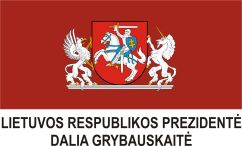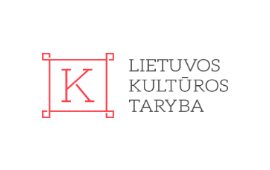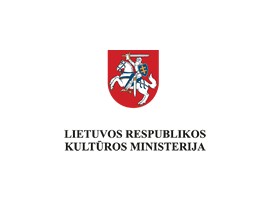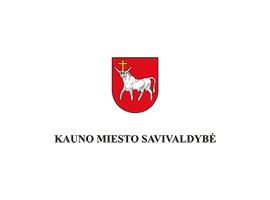PROFESSIONAL DEVELOPMENT COURSES
“To know and understand our own culture, we must learn to see it from the point of view of other cultures, comparing our customs and beliefs with those of other times and places. With globalization now upon us, and external diversity on the retreat, it is becoming a matter of urgency to protect and preserve the internal diversity that each society owes to its constituent groups and subgroups, all of which develop differences that they consider highly important.” Claude Lévi-Strauss, French ethnologist
TRAINING ABROAD: MOBILITY FOR SCHOOL STAFF (KEY ACTION 1)
Application deadline for funding – February 2, 2017
NGO Kaunas Biennial offers 4 professional development courses for practitioners from the educational sector: teachers (pre-school, primary, secondary, special needs), teacher trainers, school management staff:
· Digital Dynamic Cultural Dialogue – one-week course in London, UK
· Mosaic of Communication – one-week course in Nida, Lithuania
· Hidden in the Open Space – one-week course in Reykjavik, Iceland
· A Classroom with a Door to the World – two-week course, Guadeloupe, France
|
Course language: |
English |
|
Course fee (tuition and materials): |
700 € |
|
Pre-registration: |
click on the link (https://www.surveymonkey.com/r/QB8S5JY)
|
|
Contact |
Rita Stoskiene Tel.: +447792606442 Email: cheritage100@gmail.com |
|
Course Provider |
VšĮ Kauno bienalė / NGO Kaunas Biennial Tvirtovės al. 61-5, Kaunas LT 50154 Lithuania PIC 936977418 |
DIGITAL DYNAMIC CULTURAL DIALOGUE
LONDON, UK
ICT tools for Preservation of Intangible Cultural Heritage
The general idea to be developed by participants is the preservation and promotion of the intangible cultural heritage in the digital age of globalisation alongside looking into migration and social inclusion which influences the dynamic nature of the culture.
The course consists of on-site lectures, practical activities, cooperative work, visits and discussions. The thematic content of each day is based on learning-by-doing followed by reflection-upon-action in relation to the digital orientation of the young generation. During the course participants will visit Canterbury, explore V&A and London Canal museum, join in Morris dance and engage in eTwinning project. The course ends with a school visit, evaluation session and discussion on future initiatives, such as eTwinning or Erasmus+ projects.
For more information, go to School Educational Gateway:
http://www.schooleducationgateway.eu/en/pub/tools/catalogue/detail.cfm?id=3971
MOSAIC OF COMMUNICATION
NIDA, LITHUANIA
Effective communication and craft of mosaic making
The course raises awareness of the need to learn effective communication in order to be successful in our social lives and to achieve the goals raised in Europe 2020.
Exploring different types of communication while creating a mosaic, participants will depict the skill of communication as a main factor of social inclusion skills. These skills can be compared to pieces of mosaic – we can observe the colour and the shape of a single piece, but only a complete picture of assembled pieces together give us aesthetic satisfaction. The same with communication – only understanding the mechanism behind communication and engaging the skills efficiently we can achieve effective communication.
The course methodology is unique in a way that participants not only improve their understanding of effective communication for social inclusion but also learn the craft of mosaic making.
For more information, go to School Educational Gateway:
http://www.schooleducationgateway.eu/en/pub/tools/catalogue/detail.cfm?id=3973
HIDDEN IN THE OPEN SPACE
REYKJAVIK, ICELAND
Intangible cultural heritage in relation with nature
Cultural heritage does not end at monuments and collections of objects. It also includes traditions or living expressions inherited from our ancestors and passed on to our descendants. While fragile, intangible cultural heritage is an important factor in maintaining cultural diversity in the face of growing globalisation. An understanding of the intangible cultural heritage of different communities helps with intercultural dialogue, social inclusion and encourages mutual respect for other ways of life.
During the course participants will experience the bonds between environment and the perspective of the local community, share myths and legends from their own cultures focusing on similarities and parallels, explore important natural heritage sites.
For more information, go to School Educational Gateway:
http://www.schooleducationgateway.eu/en/pub/tools/catalogue/detail.cfm?id=3974
A CLASSROOM WITH A DOOR TO THE WORLD
GUADELOUPE, FRANCE
Internationalisation of curriculum and national identity
The course addresses the important issues raised by EU 2020, especially internationalisation and modernisation of curriculum. Participants will analyse how to re-design their school curriculum to maximize social inclusion.
Many teachers come across the dilemma of balance between internationalism and national identity, especially in single nation countries. This course will demonstrate that internationalisation of curriculum significantly enhances national identity. While learning about unique features of their own and other cultures, participants will come to an increased understanding of their own national identity at the same time developing senses of tolerance and acceptance.
In our unique outdoor classrooms, set around the island, participants will analyse internationalisation strategy and explore various methods and tools shaping internationalisation policy to the needs of their school. Alongside, interactive French language learning activities and encounters with cultural activists will provide participants with insight into local community.
For more information, go to School Educational Gateway:
http://www.schooleducationgateway.eu/en/pub/tools/catalogue/detail.cfm?id=3972
HOW TO APPLY FOR FUNDING
for information only: https://www.erasmusplus.org.uk/schools-funding
- Pre-register to show your interest and to receive support with your application here. https://www.surveymonkey.co.uk/r/WBJTNVZ
- Download the application form Mobility For School Staff (Key Action 1) from your agency website and and fill in before February 2, 2017
- The list of all agencies here: http://ec.europa.eu/programmes/erasmus-plus/contact_en
- Inform us about the results of your application to enroll on the course.
- If you have any questions do not hesitate to contact Rita Stoskiene, course organiser, by email: cheritage100@gmail.com or Skype: rstoskiene















